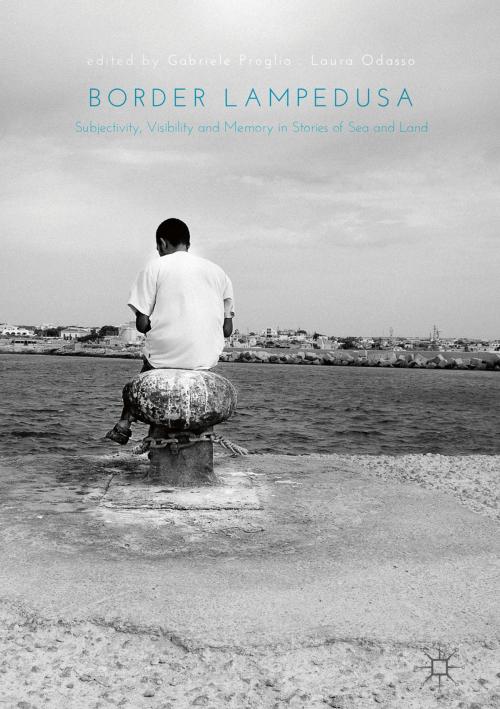Border Lampedusa
Subjectivity, Visibility and Memory in Stories of Sea and Land
Nonfiction, Social & Cultural Studies, Social Science, Cultural Studies, Emigration & Immigration, Political Science, International| Author: | ISBN: | 9783319593302 | |
| Publisher: | Springer International Publishing | Publication: | October 19, 2017 |
| Imprint: | Palgrave Macmillan | Language: | English |
| Author: | |
| ISBN: | 9783319593302 |
| Publisher: | Springer International Publishing |
| Publication: | October 19, 2017 |
| Imprint: | Palgrave Macmillan |
| Language: | English |
This book analyses the European border at Lampedusa as a metaphor for visible and invisible powers that impinge on relations between Europe and Africa/Asia. Taking an interdisciplinary approach (political, social, cultural, economic and artistic), it explores the island as a place where social relations based around race, gender, sex, age and class are being reproduced and/or subverted. The authors argue that Lampedusa should be understood as a synecdoche for European borders and boundaries. Widening the classical definition of the term ‘border’, the authors examine the different meanings assigned to the term by migrants, the local population, seafarers and associative actors based on their subjective and embodied experiences. They reveal how migration policies, international relations with African, Middle Eastern and Asian countries, and the perpetuation of new forms of colonization and imperialism entail heavy consequences for the European Union. This work will appeal to a wide readership, from scholars of migration, anthropology and sociology, to students of political science, Italian, African and cultural studies.
This book analyses the European border at Lampedusa as a metaphor for visible and invisible powers that impinge on relations between Europe and Africa/Asia. Taking an interdisciplinary approach (political, social, cultural, economic and artistic), it explores the island as a place where social relations based around race, gender, sex, age and class are being reproduced and/or subverted. The authors argue that Lampedusa should be understood as a synecdoche for European borders and boundaries. Widening the classical definition of the term ‘border’, the authors examine the different meanings assigned to the term by migrants, the local population, seafarers and associative actors based on their subjective and embodied experiences. They reveal how migration policies, international relations with African, Middle Eastern and Asian countries, and the perpetuation of new forms of colonization and imperialism entail heavy consequences for the European Union. This work will appeal to a wide readership, from scholars of migration, anthropology and sociology, to students of political science, Italian, African and cultural studies.















